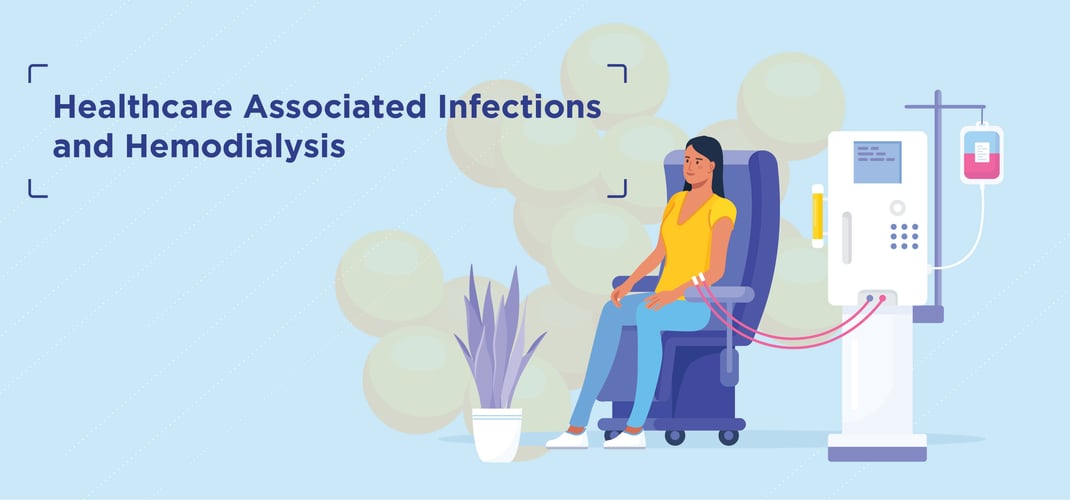Hispanic Heritage and Healthcare: Promotores de Salud

As we move into the last week of National Hispanic Heritage Month, we will turn our attention to the unique healthcare challenges faced by Hispanic/Latino Americans. Hispanic/Latino Americans are a very large (and growing) minority group, making up almost 20% of the US population. Within that group are multi-generational Americans, long-term residents (78% have lived in the US more than a decade) and recent immigrants, English-only speakers, bilingual speakers, and Spanish-only speakers, citizens (81%) and non-citizens. No single healthcare statistic applies to the diverse group of individuals, so in today's post, we will look at the most critical healthcare issues and what steps are being taken to reach the most vulnerable individuals, specifically, the use of promotores de salud, or community health workers.
Wherever health care is provided to a community by a group that is seen as an outsider, a cultural bridge is required. Throughout the past century or more, as global public health efforts grew, the individuals who help build and maintain these bridges, local community health workers, have proven to be essential in efforts such as smallpox eradication, malaria prevention, tuberculosis control, and prevention/control of HIV/AIDS. None of these achievements would have been possible without local community health workers building trust, educating healthcare workers and the community, and translating across both languages and cultures.
In the case of Latin America and the United States, health outreach to Spanish-speaking populations has come in the form of promotores de salud, a public health strategy first used in Mexico in the 1960s and 70s. At that same time, American agricultural production grew to rely heavily on a worker base from Latin America and Mexico, and agencies were formed to provide healthcare services to these migrant workers. These first agencies adopted the successful promotores concept from Mexico, training local residents to become the vital cultural bridges required to set up effective healthcare services. From these efforts grew the many public health programs that today form the cultural bridges between American health care and Hispanic/Latino communities. This model has proven essential to provide healthcare in a variety of locations including rural colonias of migrant laborers as well as neighborhoods in dense urban centers.
|
What is culturally-relevant care? To be truly patient-centered, health care must account for cultural differences among the community. This involves far more than just translating documents (although that is also important). Culturally-relevant care means being non-judgmental, accepting that different cultures handle healthcare (or family, or social relationships) differently. It means listening to patients' stories and valuing what they share in order to build trust and rapport. It also means learning about the community from the community experts, and integrating that knowledge into healthcare practice. An example of culturally-relevant care might be suggesting traditional remedies alongside modern medicine, or keeping in mind the patient's home life (multi-generational household, family responsibilities) when creating a treatment plan. A great start is having an open mind (and heart) to learn more. |
So what do promotores de salud do? Besides the overarching role as cultural bridge, these community health workers take on great responsibilities.
- Prevention: Promotores educate their communities about how to avoid certain chronic conditions, as well as provide screenings to identify issues before they become problems. This might include access to healthy, nutritious food but also supporting interventions for domestic abuse, substance abuse, or child neglect.
- Navigation: The American healthcare system, including government programs and health insurance, can be overwhelming. Promotores help Hispanic/Latino communities navigate the system, enroll in programs, and access the services they need.
- Advocacy: More than just a translator, promotores can help both the patient and the provider understand each other better culturally. Sometimes this means accompanying an individual to an appointment and asking the right questions, but it could also extend to case management and follow-up care.
Who are promotores? Typically, promotores are community members, often in leadership positions, who take steps to help their peers access healthcare services. Government and non-profit programs often provide training and salaries to these community health workers, enabling them to provide transportation to their clients, access to mobile hotspots for enrollment in health insurance, government programs, or telehealth, and even some basic healthcare follow up that requires tracking, such as medication administration, wound care, or blood pressure monitoring. The largest organization of promotores de salud is MHP Salud, a national network that provides resources, training sessions, advocacy and other supports. Healthcare systems in areas with significant Hispanic/Latino populations will often have their own promotores programs, as do health-adjacent nonprofits such as food banks, shelters, and substance abuse programs.
Promotores de salud and other community health worker programs are able to achieve effective and efficient results because they start at the community level and enable to culture to dictate how the program develops. The obstacles to seeking healthcare in some Hispanic/Latino communities can be tremendous, including citizenship status, lack of insurance, fear of being judged or mistreated, in addition to the burdens of running a household and maintaining multiple jobs. In these cases, being able to rely on a trusted community member to help identify a course of action, navigate through paperwork and multiple agencies, find childcare, get transportation, fill prescriptions, and then answer questions is vital to success.
Have you had the opportunity to work with a promotora/o de salud or other community healthcare worker? Share your experiences in the comments below!
![EOScu Logo - Dark - Outlined [07182023]-01](https://blog.eoscu.com/hubfs/Eoscu_June2024/Images/EOScu%20Logo%20-%20Dark%20-%20Outlined%20%5B07182023%5D-01.svg)





